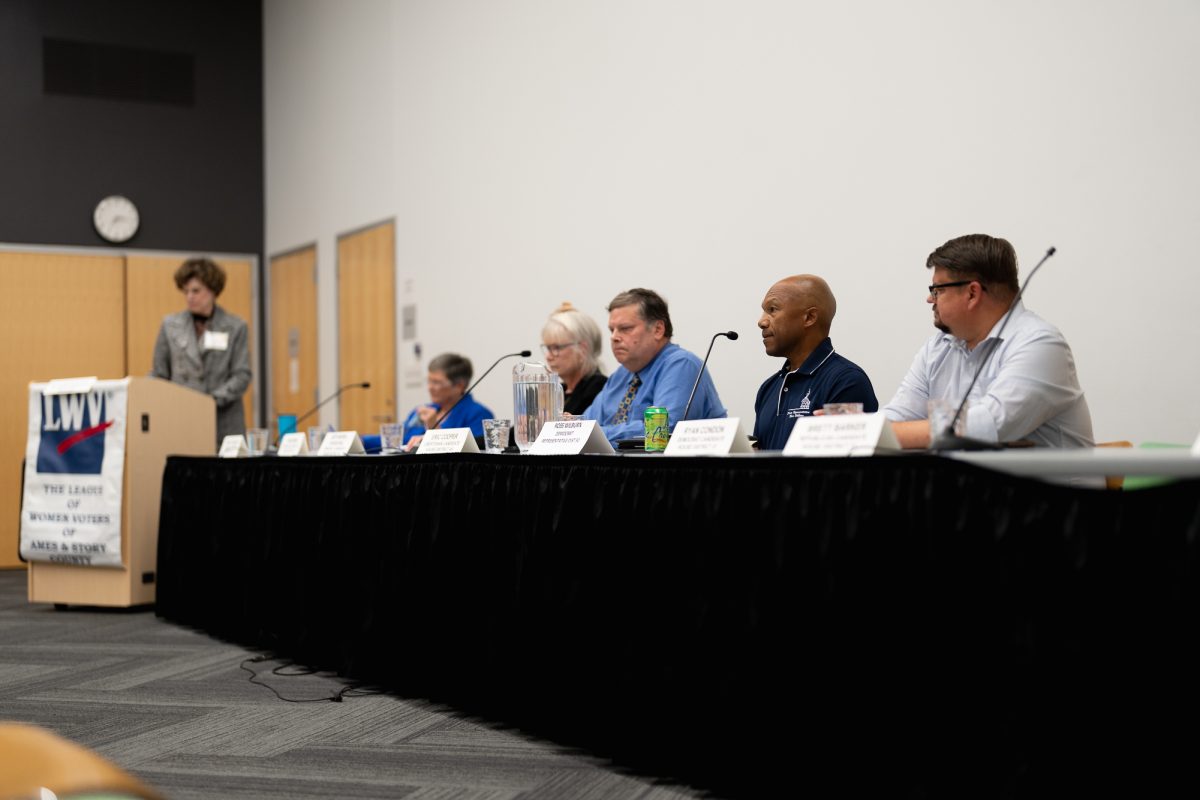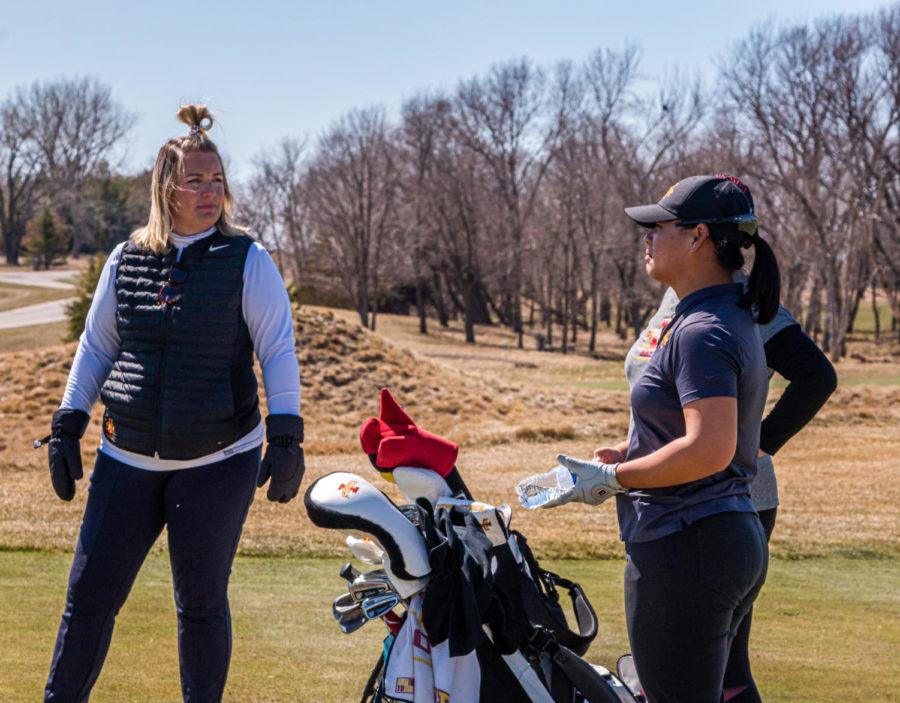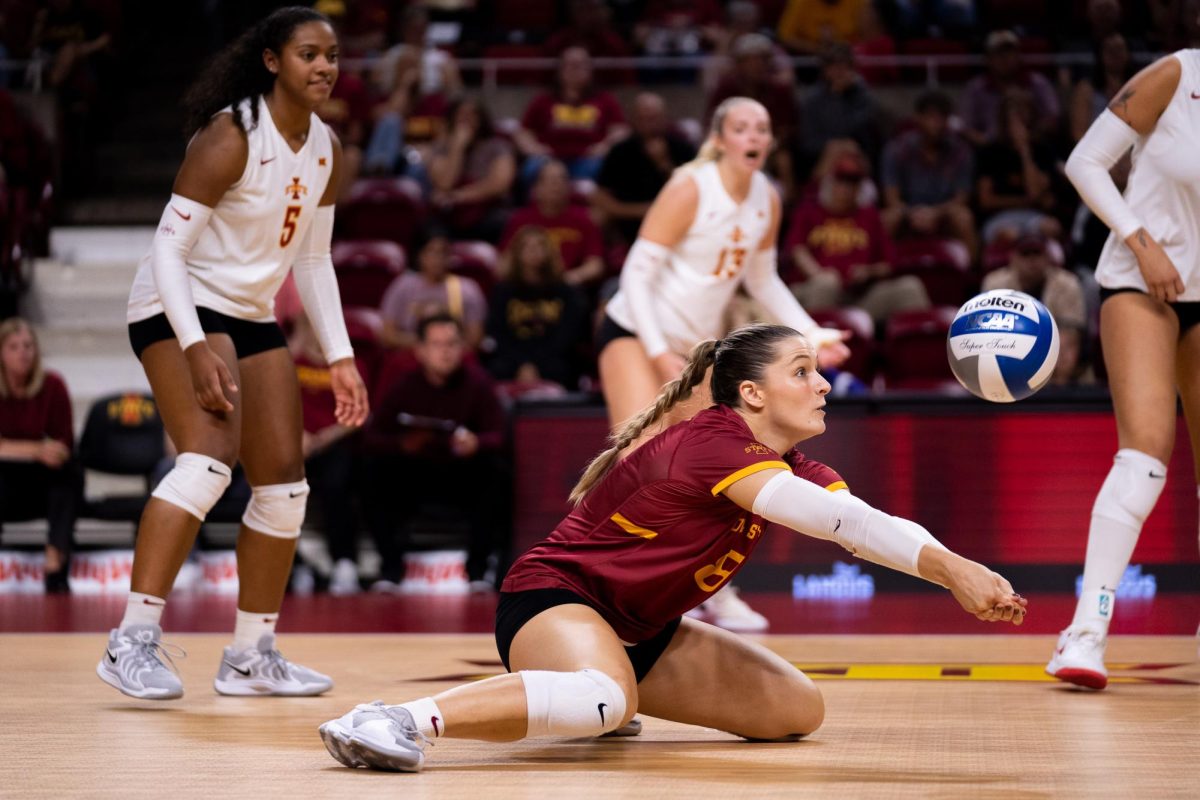‘Coming out’ in college is difficult for many students
April 14, 1998
Many students first recognize their gay, lesbian or bisexual orientation during their college years, and the university environment in which they live often plays an instrumental role in the process of coming out, according to one Iowa State professor.
In a program about coming out in college residence halls, Nancy Evans, associate professor in the department of educational leadership and policy studies, presented the results of a study she conducted on 20 lesbian, gay and bisexual undergraduates living in residence halls at Pennsylvania State University.
Evans’ research looked at different aspects of the study’s participants, from external and environmental conflicts to internal conflicts they faced.
“Lesbian, gay and bisexual individuals will come out to three different populations. First, they come out to themselves, then to another LGB ally and lastly to heterosexuals,” Evans said.
Evans quoted participants from her study about experiences they encountered while living in the residence halls.
She said all participants in the study said coming out to a roommate presented additional challenges, but that not coming out resulted in a significant amount of self-censorship.
“I felt like I was in a position where if I said anything about his homophobic comments, that I might get beat up or harassed or otherwise dealt with for being gay,” said one male subject.
Evans’ research discovered a common motivator for not coming out was fear of reprisal, and that grounds for coming out stemmed from internal feelings.
Some individuals who participated in the study said staying “in the closet” gave them a sense of security, she said.
Evans’ research revealed that the participants who lived on residence hall floors with a “heightened sense of community” were seen as more positive and accepting.
She said more social organization is necessary for tolerance of lesbian, gay and bisexual individuals.
“The university needs to be more of a support vehicle for the students. Most students felt like the issue of sexual orientation was too political. “While the political agenda is important, we don’t want to forget the students. They need a place where they can go for support and a place they feel they have an ally,” Evans said.
Most of the participants said they did not come out in the residence halls because they felt the decision would be unsafe.
One student in the study said members of his residence hall floor lacked support and displayed a low sense of community.
“I don’t think I would be as out as I am today if I still lived in that hall,” he said.
Evans said coming out is not an either-or process, but that it is a continuum.
“Once you come out, that is only the beginning; it is a process that will continue throughout your entire life,” Evans said.
Evans currently is working on a project that will develop more “safe zones” in Ames. She said universities need to recognize the lesbian, gay and bisexual populations.
“Colleges need to be aware that many students first come out during their college years. Residence hall staff needs to be aware of the LGB symbols [such as] the pink triangle, a rainbow or freedom rings. Staff needs to be aware of the stress that these individuals are under and be sensitive to the coming-out process,” she said.
“People need to recognize that a person’s LGB identity is not their entire identity. We need to see people as people,” Evans said.
For more information about the study or for support from ISU’s Lesbian, Gay, Bisexual, Transgender Ally Alliance, call 294 -2104.






